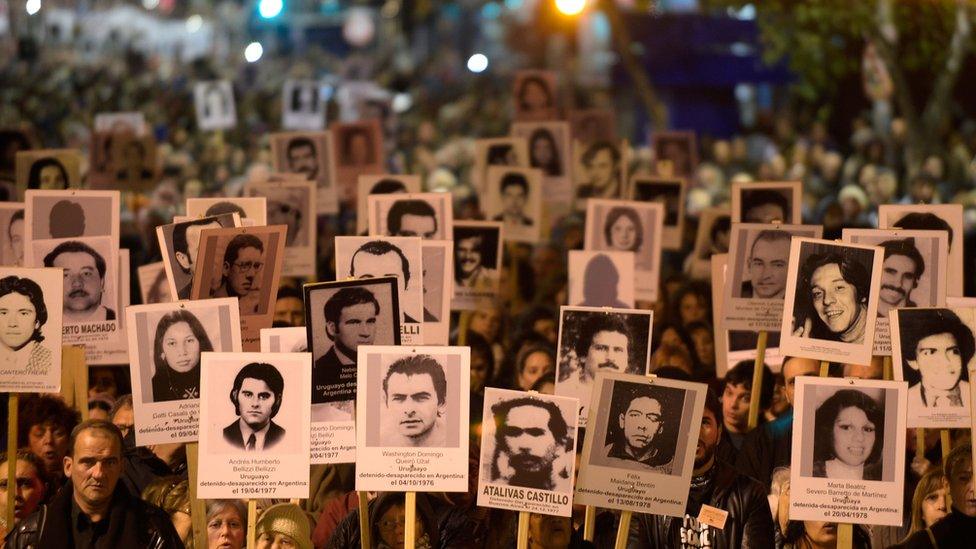Uruguay mourns ex-President Tabaré Vázquez, who died of cancer
- Published
Watch as Uruguayans bid farewell to Tabaré Vázquez
Uruguayans have been mourning former President Tabare Vázquez, who died of lung cancer on Sunday.
Vázquez was a cancer doctor who campaigned tirelessly against the tobacco industry during his two terms in office.
He became Uruguay's first left-wing leader in 2005, when his coalition defeated the two traditional parties that had dominated Uruguayan politics.
He was re-elected in 2015 and handed power to his successor earlier in 2020.
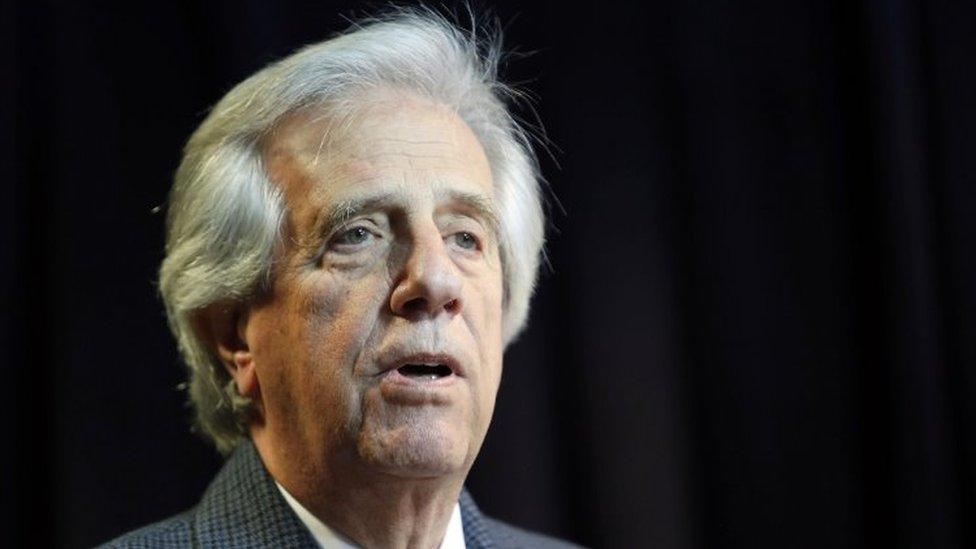
Tabaré Vázquez took on the tobacco industry
Thousands of people joined his funeral service and his left-wing Broad Front coalition marked his death by turning off all the lights at their headquarters except those in Tabaré Vázquez's office.
The current president, Luis Lacalle Pou, announced that there would be three days of national mourning.
Politicians from across the continent and the political spectrum also paid tribute to him for his stance on human rights and social justice.
Colombia's right-wing president, Iván Duque, wrote on Twitter that Vázquez had been "a politician with principles who left a legacy of untiring work for public health".
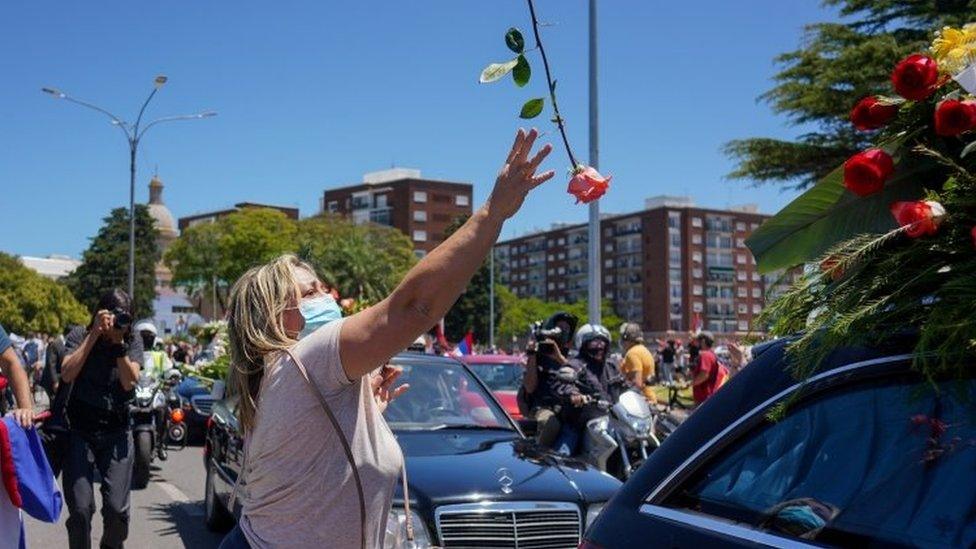
Thousands of people gathered to bid farewell to the former president
Cuba's Communist President Miguel Díaz-Canel sent his deepest condolences to the Uruguayan people following "the death of our friend, President Tabaré Vázquez".
Spanish Prime Minister Pedro Sánchez described Vázquez as a president "dedicated to his country, who governed with and for the people".
"His administration left a legacy of rights and social policies," Mr Sánchez added.
Vázquez only became a politician in his forties, after studying medicine and practicing as an oncologist.
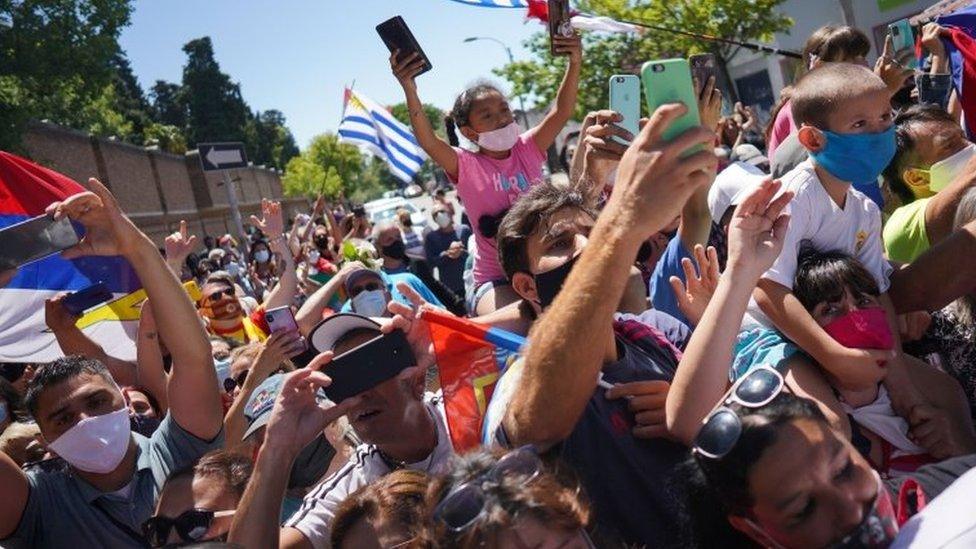
Many shouted his name as the funeral procession drive by
The son of a union leader who had grown up in a working class neighbourhood of Montevideo, he strengthened the unions and fought to improve Uruguay's social services.
He took on a fierce battle against the tobacco industry, forcing cigarette sellers to print graphic warnings on cigarette packets.
He had been a smoker himself until he stopped at the age of 24.
Under his leadership, Uruguay also became the first country in South America to ban smoking in enclosed public places in 2006.
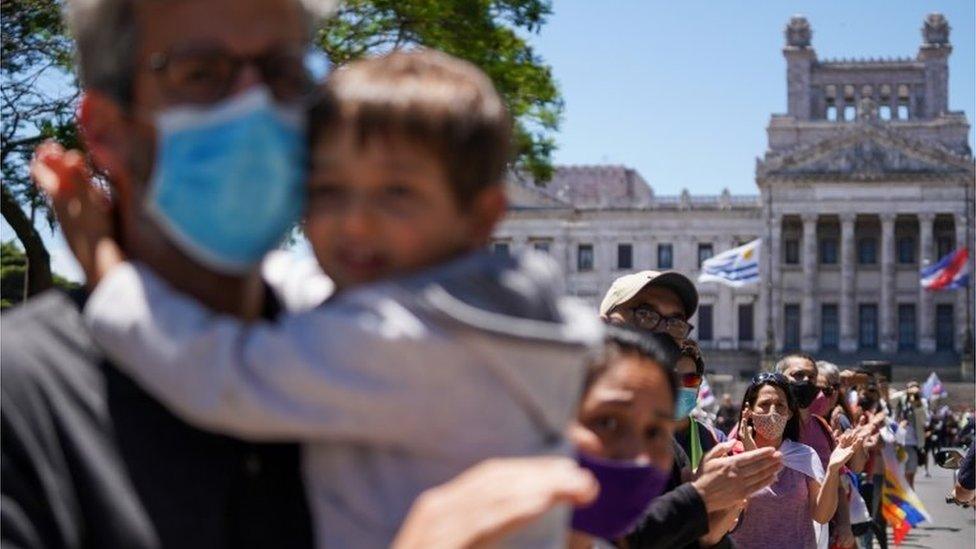
The funeral procession passed by the legislative palace in Montevideo
During his second term in office he spent much of his efforts on fighting non-communicable diseases, hosting the World Health Organization's World Conference on the subject.
The Pan-American Health Organization named him Public Health Hero of the Americas in 2018 in recognition of his work.
While internationally he is best known for his battle against smoking, in Uruguay many victims of the dictatorship will remember him for his insistence in tracing those who disappeared under military rule between 1973 and 1985.
Related topics
- Published23 April 2020
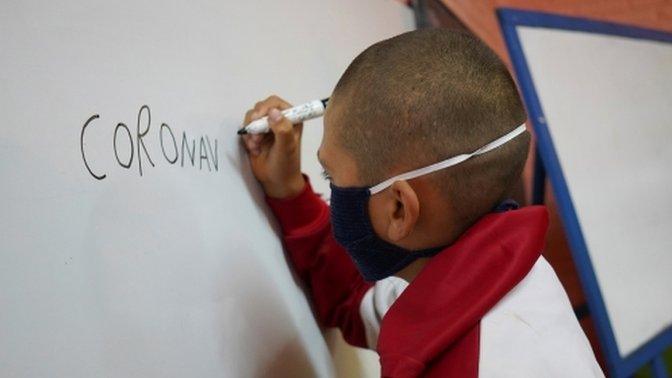
- Published28 November 2019
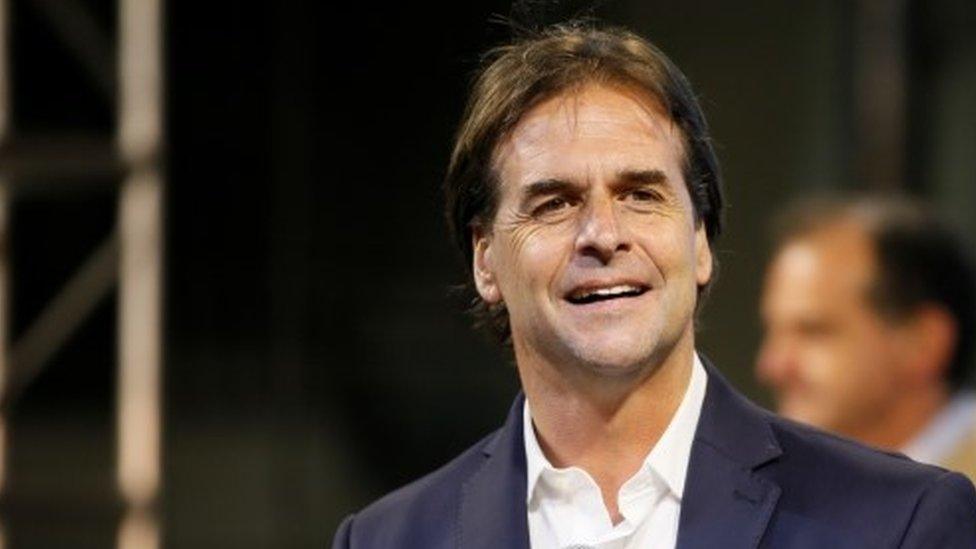
- Published27 October 2019
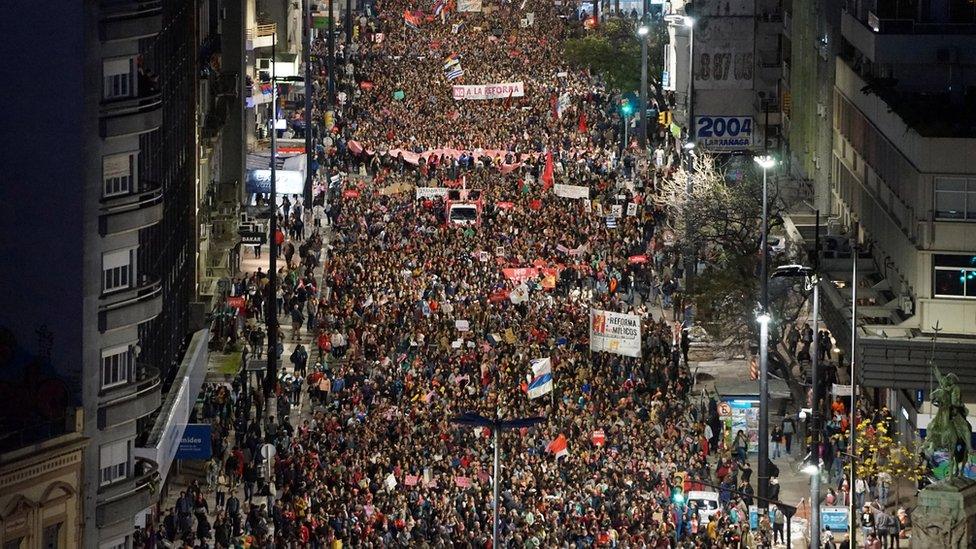
- Published9 July 2019
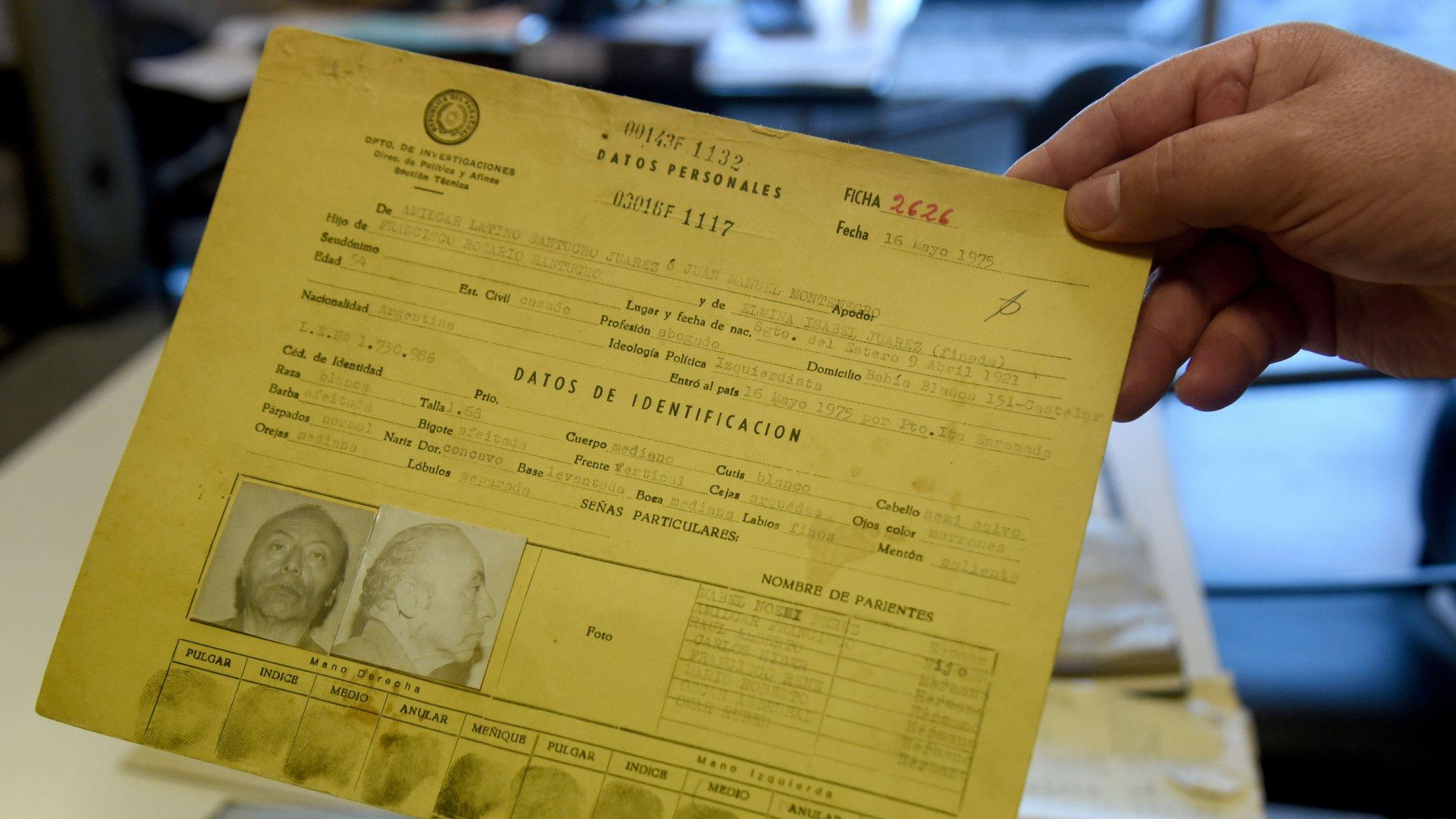
- Published2 April 2019
